5 Retirement Planners You Need to Know
Getting ready for retirement can be scary! You get one shot to get it right. You’ll be facing questions you’ve never been faced before like:
- When to retire?
- How much income can I live on?
- How to plan for market investments going up and down?
- How to manage your taxes in retirement?
- What will healthcare and insurance cost?
When looking for a retirement planner, the decisions you make with your Social Security, pension, investments and taxes could cost or make you tens or hundreds of thousands of dollars!
A good retirement focused financial advisor can help you navigate your retirement system and turn your retirement savings into retirement income!
How do I choose the best retirement planner for me?
The first step to choosing a financial advisor, or retirement planner, is to really understand first what it is you are looking for.

Are you trying to get the absolute highest return? Then an investment focused financial advisor would make sense.
Or are you trying to get the most out of your pension, avoid making big retirement mistakes, and trying to lower your lifetime income? Then you’ll want to find a financial planner who specializes in retirement planning.
How do I find a good retirement planner?
A good retirement planner should specialize in retirement planning!
Check out their website to make sure retirement planning is their specialty
Do they talk about the issues you need help with, such as what to do with your employer stock plan or pension? Or do they talk in more general terms that suggest their knowledge is a mile wide and an inch deep?
Check their credentials to make sure they are trained in retirement planning
A good starting point for finding a financial retirement planner is to work with a CFP® advisor. Each CFP® professional has completed a 72 topic course of study and has agreed to the Certified Financial Planner Board’s standard of excellence. To verify your advisor is a CFP® professional visit Verify a Certified Financial Planner (CFP®) Professional.
Here are some other credentials you ought to consider when looking for a retirement planner:
Retirement Income Certified Professional® (RICP®)
The Retirement Income Certified Professional® designation is an extensive and intensive retirement planner income education offered by the American College of Financial Services. The financial professional with this designation must take 3 courses around Retirement Income Strategy, Sources of Retirement Income and Managing the Retirement Income Plan.
Retirement Management Advisor® (RMA®)
The Retirement Management Advisor® designation goes beyond the simple accumulation focus of other retirement planning certifications. The focus is on retirement distribution methods, tax-efficient planning and healthcare planning. There’s a strong focus on both investment allocation risk management.
The RICP® and RMA® are quite similar – there’s really no need for your advisor to hold both retirement planner designations.
NATIONAL SOCIAL SECURITY ADVISOR CERTIFICATE (NSSA®)
The National Social Security Advisor certificate is the first Social Security program in the nation. Since 2013 the National Social Security Association has been helping professional advisors benefit society by helping individuals and couples improve their financial security during retirement years through maximization of Social Security benefits.
There is a big focus on ‘Situational Social Security’ meaning that your individual situation should dictate how you take Social Security as opposed to generalized opinions.
Registered Social Security Analyst (RSSA®)
The Registered Social Security Analyst program guides you through Social Security essentials, how it fits into your retirement planning and how to use their software program RSSA Roadmap. There is also some retirement planner education around Medicare.
Just like the similarities between RICP® and RMA®, the NSSA® and RSSA® are quite similar and there is no need for your advisor to hold both of these Social Security designations.
Who are the Retirement Focused Financial Advisors you need to know in 2024?
Before I reveal the retirement planner list it’s important to know how I came up with it. I’ve been a financial advisor for nearly 20 years and thankfully, through my membership in places like the Financial Planning Association of Wisconsin and the CFA Society of Milwaukee I’ve gotten to meet a lot of advisors, and different types of retirement planner advisors.

The following are retirement planner financial advisors and firms that I’ve interacted with throughout the years who I feel stand out for their expertise and I broke them out by their specialty. In addition, as of the date of this article, each of the advisors on the list:
- Acts as a fiduciary
- Is not registered as a stockbroker salesperson
- Has a minimum of the Certified Financial Planner (CFP®) designation
- Focuses on the financial planning strategy vs. trying to beat the market with investments
- Has an focus on educating and empowering you to make great retirement decisions.
*Please note that this is not a testimonial, endorsement, or ranking, but just my opinion. Inferences made are not based on client’s experience or endorsement of advisory services offered through Thrivent Advisor Network, LLC or other firms.*
New Retirement Planning Software
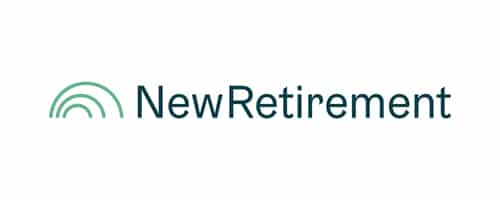
Specializing in DIY investors who want to go beyond Excel.
The answer to who to choose as a financial advisor might be yourself, through retirement focused financial planning software. New Retirement helps you organize all your finances in one place, discover opportunities like Roth Conversions, make decisions and stay on track.
With the free version you can build a personalized plan and try different ‘what if’ scenarios.
At $120/year you’ll get access to different scenario options and the type of retirement planning that your Excel spreadsheet can’t offer. They also offer retirement planning classes, 1 on 1 retirement coaching (for a fee), and for $1500+/year access to a Certified Financial Planner® professional. To take retirement planning into your own hands visit NewRetirement.com.
Rock Retirement Club
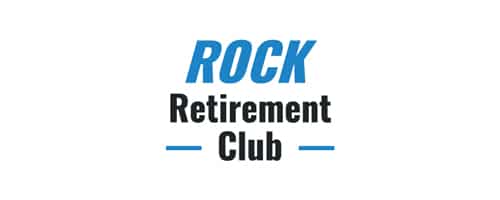
Specializing in DIY investors who want added support, but not a financial advisor.
If you want to gain the knowledge you need to create a great retirement, but feel you need more support than a software program then the Rock Retirement Club at $799.99/year might be right for you.
Roger Whitney, host of The Retirement Answer Man podcast created the club as an alternative to working with a financial advisor. There is self-paced retirement planning education, access to financial advisors who can educate (but not advise specifically) and already retired members who can help coach you on how to rock retirement. Rock Retirement onboards new members during specific times each year.
To join the waitlist visit RockRetirementClub.com.
Andy Panko and Tenon Financial
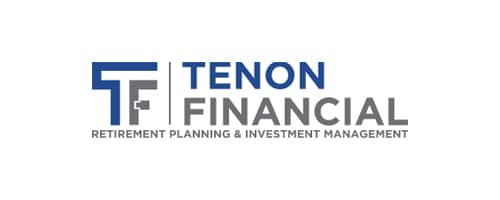
Specializing in tax-efficient retirement planning and investment management for a flat annual fee.
Andy and his team focus on providing tax-efficient retirement planning and investment management. Andy is well-known within the financial advisor community for charging a flat-fee financial planning fee as well as his debunking of many myths that are propagated around Indexed Universal Life Insurance, Life Insurance Retirement Planning, and the Be Your Own Bank / Infinite Banking concept.
Allan Roth with Wealth Logic
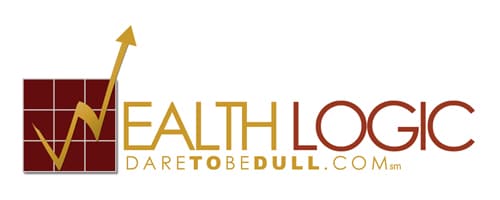
Specializing in people who want to pay their financial advisor on an hourly basis like you would an accountant or lawyer.
Allan focuses on using data and logic to help with your tax, insurance, retirement and tax planning. Allan is often quoted in the media, and is known for his focus on hourly financial planning, where you pay an hourly rate as opposed to an ongoing investment advisory fee.
Allan can draw on his experience with McKinsey & Company should you need business planning services such as employee benefits and incentives compensation and acquisitions and valuations.
===
And where does Keil Financial Partners fit into the Retirement Planner Financial Advisor list?
I’m so glad you asked!
Keil Financial Partners
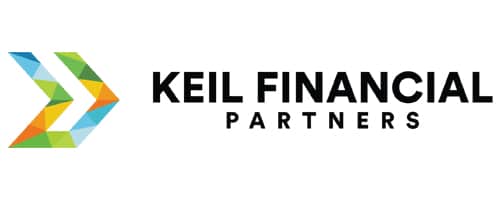
Specializing in retirement planning for the almost retired, especially if you have stock or a pension from companies like We Energies, Harley-Davidson, Abbott/AbbVie and AT&T.*
At Keil Financial Partners, our financial professionals use a 5-step retirement income plan to guide you through all the big decisions you’ll be making as you enter retirement. Oftentimes, the way you fill out your pension and Social Security form could make or break you tens or hundreds of thousands of dollars over your lifetime – and once its signed you probably can never change it again!
If you have saved $500k+ and would like guidance on your retirement, investment, and tax planning decisions, or have questions on your pension, Social Security, 401(k) and employer stock then one of our Certified Financial Planner (CFP®) professional retirement planners would be happy to get you pointed in the right direction.
===
I hope this guide helps you find the best retirement planner financial advisor for you..
Please use it as a starting point for your financial advisor search. Remember these three steps when looking for a retirement planner:
- First decide what problem you need to solve, then
- Decide what type of retirement planner advisor you are looking for and finally
- Search for those types of advisors and ask them pointed questions on how best they can serve you.
Again, here are a few directories to help you get started:
Financial Advisor Directories
Wealthtender.com with a lot of filters to find your specific type of advisor
CFP® Professional Directory to find a CFP® certified advisor
Planner Search for members of the Financial Planning Association
By Jeremy Keil, CFP®, CFA
Jeremy Keil, CFP®, CFA is a retirement focused financial planner with Keil Financial Partners , and host of the Retirement Revealed blog and podcast, as well as the Mr. Retirement YouTube channel.
*Keil Financial Partners of Thrivent Advisor Network is not affiliated with the We Energies, Harley-Davidson, Abbott/AbbVie and ATT&T, nor are representatives of their benefits, retirement or pension plans. They have extensive knowledge of the company benefit and retirement plans, but do not have full expertise for a complete discussion of the details of your specific situation. For complete details, contact the company’s H.R. department and/or Retirement Plan Administrator for complete details.
Share:
Listen to Retirement Revealed on:

